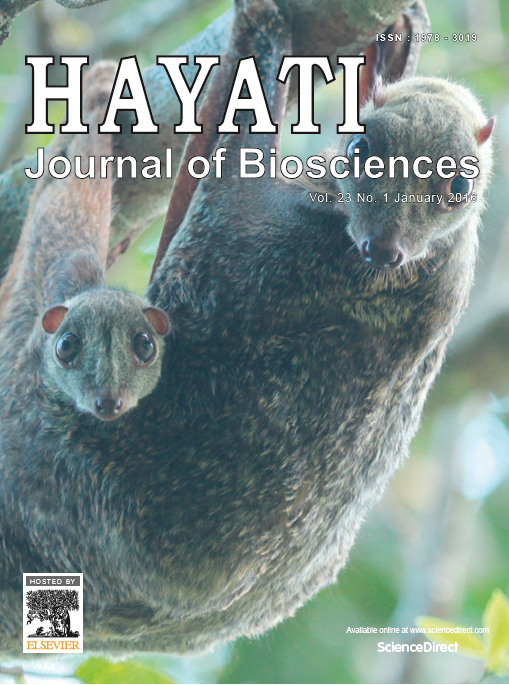Increasing Al-Tolerance of Sugarcane Using Ethyl Methane Sulphonate and In Vitro Selection in the Low pH Media
Abstract
Increased production of sugarcane in Indonesia can be done with extensification sugarcane plantations which largely dominated by acidic upland red-yellow podzolic soil. High aluminium (Al) content and low pH of the soil can inhibit plant growth and development. Tolerant sugarcane in acid soil is the most efficient way, but the adaptive variety is still limited. In vitro culture technique can increase genetic variability to assemble new varieties through somaclonal variation combined with mutation using ethyl methane sulphonate (EMS). The new characters was directed by in vitro selection using AlCl3.6H2O with pH = 4 as a component of selection for resistance to high aluminium. VMC 7616 and PS 862 varieties were used as materials. Mutation induced using EMS at concentrations of 0.1%, 0.3%, and 0.5% for 30, 60 and 120 minutes. Plantlets mutant obtained through callus formation, immersion callus in EMS, in vitro selection, and regeneration of callus. Result of study showed that the long immersion in the EMS solution caused greater damage to the cells, as indicated by the change in callus colour. Callus immersion time in EMS gave greater influence to regeneration compared to concentration of EMS. PS 862 had higher Al tolerance than VMC 7616. Rooting of shoot induced using indole-3-butyric acid (IBA) 3 mg/L.Downloads
HAYATI J Biosci is an open access journal and the article's license is CC-BY-NC. This license lets others distribute, remix, tweak, and build upon author's work, as long as they credit the original creation. Authors retain copyright and grant the journal/publisher non exclusive publishing rights with the work simultaneously licensed under a https://creativecommons.org/
























.png) IPB University
IPB University Department of Biology
Department of Biology The Indonesian Biological Society
The Indonesian Biological Society 

